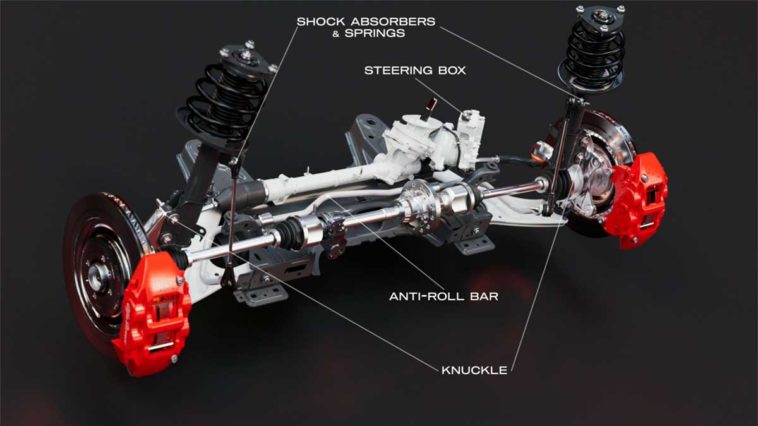Analyzing Trump's Aerospace Deals: Big Promises, Little Transparency

Table of Contents
H2: Promised Job Creation and Economic Growth in the Aerospace Sector
Trump's campaign rhetoric heavily emphasized job creation in the aerospace sector, promising a revitalization of American manufacturing and technological leadership. Many of these promises were tied to specific aerospace deals, creating a high expectation for economic growth in relevant states and regions. However, assessing the actual impact proves challenging due to a lack of comprehensive, publicly available data.
H3: Campaign Promises vs. Reality
While specific job creation numbers attributed directly to individual aerospace deals under Trump are difficult to isolate definitively, we can analyze broader trends. For instance, Boeing, a major recipient of government contracts, announced job growth during this period, but attributing this solely to Trump administration policies is difficult without more transparent reporting on individual deal outcomes. Similarly, SpaceX collaborations, while contributing to innovation, didn’t necessarily translate into the massive job creation some expected.
- Specific deal examples: While specific figures remain elusive due to the lack of transparency, examining contracts awarded to Boeing for Air Force One replacement, and SpaceX contracts for NASA missions, should be part of a wider investigation into deal-specific job creation.
- Data on job creation in relevant states/regions: Data on overall job growth in aerospace-heavy states like Washington, California, and Florida needs to be analyzed in conjunction with data on aerospace-specific contract spending to accurately gauge the impact of Trump's policies.
- Analysis of economic impact studies: Independent economic impact studies are crucial in assessing the true economic benefit of these deals. The lack of such publicly available, comprehensive studies significantly hampers any conclusive analysis.
- Discrepancies between promised and realized outcomes: The significant gap between the ambitious job creation promises and the difficulty in verifying their fulfillment underscores the urgent need for greater transparency.
H2: National Security Implications of Trump's Aerospace Deals
The national security implications of Trump's aerospace deals are another significant area of concern. Deals with foreign entities, particularly those involving sensitive technologies, raise questions about potential conflicts of interest and vulnerabilities.
H3: Foreign Policy Considerations
The lack of transparency makes it difficult to properly assess the geopolitical impact of several deals.
- Deals with countries considered adversaries or strategic rivals: The potential for technology transfer and the implications for national security require rigorous scrutiny, particularly where deals involved countries with less-than-friendly relations with the US.
- Analysis of expert opinions on national security implications: Independent analyses from national security experts are crucial to assess the long-term risks associated with these deals. Their voices were often marginalized due to the limited access to relevant information.
- Government reports or inquiries related to national security concerns: The absence of comprehensive government reports investigating the national security implications of these deals further underscores the lack of accountability.
H2: Lack of Transparency and Public Accountability in Aerospace Deal-Making
The most significant issue surrounding Trump's aerospace deals is the pervasive lack of transparency. Information surrounding the decision-making processes, the terms of contracts, and the actual outcomes has been consistently limited.
H3: Limited Public Access to Information
Efforts to obtain information through Freedom of Information Act (FOIA) requests have frequently been met with delays, redactions, or outright denials.
- Examples of instances where information requests were denied or delayed: Numerous examples exist where journalists and researchers have been thwarted in their attempts to obtain crucial details about the deals.
- Discussion of relevant FOIA requests and their outcomes: Analyzing the outcomes of FOIA requests provides insight into the extent of the government's unwillingness to share information.
- Controversies surrounding the lack of transparency: The lack of transparency has sparked controversies and fueled public distrust in the government's handling of these crucial deals.
H2: The Role of Lobbying and Special Interests in Aerospace Deal Negotiations
The influence of powerful corporations and lobbying groups on the negotiation and awarding of aerospace deals is another aspect requiring investigation.
H3: Influence of Powerful Corporations
The close relationship between certain corporations and the Trump administration raises questions about potential conflicts of interest.
- Key players and their influence on policy decisions: Identifying the key players and their influence is crucial to understand how deals were shaped.
- Campaign finance records and potential links between political donations and favorable policy outcomes: Examining campaign finance data could reveal potential connections between donations and contract awards.
- Potential conflicts of interest: The potential for conflicts of interest necessitates a thorough investigation into the processes governing these deals.
3. Conclusion
Analyzing Trump's aerospace deals reveals a concerning pattern: substantial promises regarding job creation, economic growth, and national security were made, but the absence of transparency prevents a proper evaluation of their actual impact. The lack of readily available data, coupled with the difficulty in obtaining information through official channels, hinders independent assessment and fuels public distrust. To ensure responsible government spending and prevent similar issues in the future, we must demand greater transparency and independent oversight of all government aerospace contracts. Strengthening FOIA laws and promoting independent audits of aerospace deal-making are essential steps toward achieving accountability and restoring public trust in the process of awarding government aerospace contracts. The pursuit of "aerospace deal transparency" is not merely an issue of bureaucratic efficiency but a critical element of safeguarding national security and promoting responsible governance.

Featured Posts
-
 Le Matin Auto Teste L Alfa Romeo Junior 1 2 Turbo Speciale
May 21, 2025
Le Matin Auto Teste L Alfa Romeo Junior 1 2 Turbo Speciale
May 21, 2025 -
 Analyzing Qbts Stocks Potential Response To Upcoming Earnings
May 21, 2025
Analyzing Qbts Stocks Potential Response To Upcoming Earnings
May 21, 2025 -
 Job Cuts At Good Morning America The Impact On On Air Talent
May 21, 2025
Job Cuts At Good Morning America The Impact On On Air Talent
May 21, 2025 -
 Southern French Alps Late Snowfall And Stormy Weather
May 21, 2025
Southern French Alps Late Snowfall And Stormy Weather
May 21, 2025 -
 Malta Triumf Foer Jacob Friis En Kaempig Start Pa Traenarkarriaeren
May 21, 2025
Malta Triumf Foer Jacob Friis En Kaempig Start Pa Traenarkarriaeren
May 21, 2025
